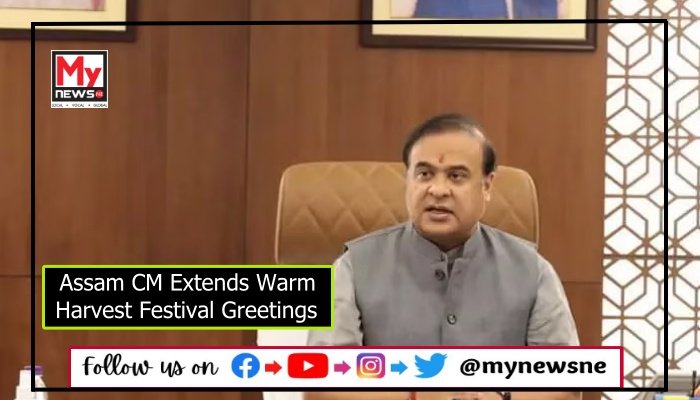Assam CM extends jubilant Lohri, Magh Bihu, Makar Sankranti, Pongal and Uttarayan greetings
Guwahati, 14th January: Assam Chief Minister Himanta Biswa Sarma has joyfully extended greetings for Lohri, Makar Sankranti, Pongal, Magh Bihu, and Uttarayan to the nation.
Writing on platform X, CM Sarma expressed, “These harvest celebrations beautifully reflect our cultural reverence for Mother Nature. May the spirit of these festivals foster love and harmony across our nation. Sending my best wishes to all for a radiant and prosperous future! 🌾🌞
India is currently immersed in a vibrant tapestry of cultural festivities, celebrating a quartet of harvest festivals: Makar Sankranti, Lohri, Pongal, Uttarayan, and Magh Bihu. Each festival, deeply rooted in tradition and agricultural practices, marks the transition from winter to longer, warmer days ahead.
Makar Sankranti, a pan-Indian solar festival, venerates the Sun God, Surya, marking the sun’s northward journey into the zodiac sign of Capricorn. Traditions include holy dips in rivers, kite flying, and sharing sesame and jaggery sweets symbolizing unity and joy. The festival takes on various names in different regions, such as Pedda Panduga in Andhra Pradesh, Pongal in Tamil Nadu, and Magh Bihu in Assam.
Lohri, primarily celebrated in Punjab, heralds the end of winter with bonfires, dance, and music. People gather around the fire, offering sweets and performing the Lohri Fire Puja. Traditional dishes like Sarso da Saag and Makke di Roti are savored, completing the festive atmosphere.
Pongal, a four-day festival in Tamil Nadu, starts with Bhogi Pongal, symbolically discarding old items in a fire. Surya Pongal involves cooking the Pongal dish outdoors as an offering to the Sun God. Mattu Pongal honors cattle, and Kaanum Pongal is for visiting friends and family to express gratitude.
Magh Bihu in Assam is synonymous with community feasts and traditional games. Uruka, the eve of Magh Bihu, involves staying up all night around bonfires, engaging in singing and dancing. The main day includes early morning baths, playing indigenous games, and distributing rice cakes.
As the sun rises on January 14th, the entire nation comes alive with the spirit of these festivals, reflecting the rich agricultural heritage and joyous rhythms of life that bind communities across India in celebration and thanksgiving.
Read More: Revanth Reddy Heads To Manipur For Bharat Jodo Nyaya Yatra

